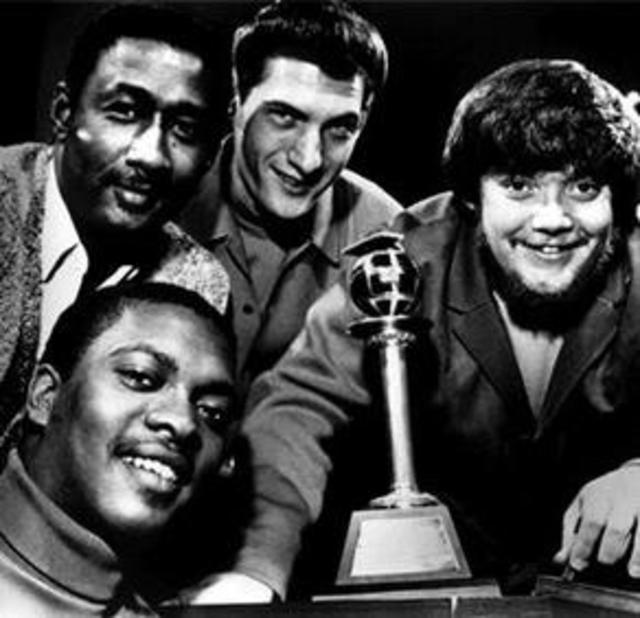Booker T. and the M.G.’s

As the house band for the Stax/Volt labels, Booker T. and the MG's helped define the spare, punchy sound of Memphis soul music. By contrast to Motown's orchestrated, pop-soul records, the Stax approach was lean, economical and deeply groove-oriented. Between 1963 and 1968, Booker T. and the MGs appeared on more than 600 Stax/Volt recordings, including classics by such artists as Otis Redding, Eddie Floyd, Rufus Thomas, Carla Thomas, Johnnie Taylor and William Bell. As a result of Stax's affiliation with Atlantic Records, the group also worked with Wilson Pickett, Sam and Dave, and Albert King. Moreover, Booker T. and the MGs were a successful recording group in their own right, cutting 10 albums and 14 instrumental hits, including "Green Onions," "Hang 'Em High," "Time Is Tight" and "Soul-Limbo."The group came together in the early Sixties at Stax Records, a studio and record store on East McLemore Avenue in Memphis. By 1962, guitarist Steve Cropper, organist Booker T. Jones and bassist Lewis Steinberg were established session musicians at Stax. They were joined on a recording date for Billy Lee Riley (of "Flying Saucers Rock 'n' Roll" fame) by drummer Al Jackson, with whom Steinberg had played in the house band at Memphis' Plantation Inn. It was during some down time at the Riley session that this lineup recorded the classic Sixties soul instrumental "Green Onions." The definitive version of Booker T. and the MGs (which stood for "Memphis Group") was completed in 1963, when bassist Donald "Duck" Dunn - a former schoolmate and bandmate of Cropper's who'd been touring with the Mar-Keys, another Stax backup group - replaced Steinberg. This lineup lent instrumental fire and uncluttered rhythmic support to countless soul classics. Particularly fruitful was their relationship with Stax's biggest star, Otis Redding. In addition to playing on virtually all of his records, the band backed him at his legendary performance at the Monterey Pop Festival in 1967 (along with the Mar-Kays), and guitarist Cropper co-wrote his best-known number, "(Sittin' On) The Dock of the Bay." Cropper also shared writing credits on such soul standards as Wilson Pickett's "In the Midnight Hour" and Eddie Floyd's "Knock On Wood."The group gradually disintegrated after the sale of Stax in 1968, although the rhythm section of Dunn and Jackson continued to play on many subsequent Stax recordings. Booker T. Jones branched out into record production and worked on a music degree at Indiana University. Cropper opened a studio in Memphis in 1969 and moved to Los Angeles to do session work in the mid-1970s. Jackson went on to provide a solid backbeat for Al Green. All the while, Booker T. and the MGs remained an ongoing entity, albeit an intermittent and casual one - that is, until the senseless murder of Jackson by an intruder in 1975. In 1993, the remaining members came together to back Neil Young on a tour. In 1994, they released That's the Way It Should Be, their first album in more than 20 years. The following year, in 1995, the group served as a house band at the opening concert for the Rock and Roll Hall of Fame and Museum. They backed Aretha Franklin, Sam Moore, John Fogerty and Al Green. They also did their own set. Then, in 2002, the band backed Neil Young on his Are You Passionate? album, and in 2004 they served as a house band for Eric Clapton's Crossroads Guitar Festival in Dallas. In 2011, Jones released the critically acclaimed album The Road From Memphis, featuring guest appearances from Yim Yames of My Morning Jacket, Sharon Jones and Lou Reed.On May 13, 2012, Donald "Duck" Dunn died in his sleep after playing a show in Tokyo.